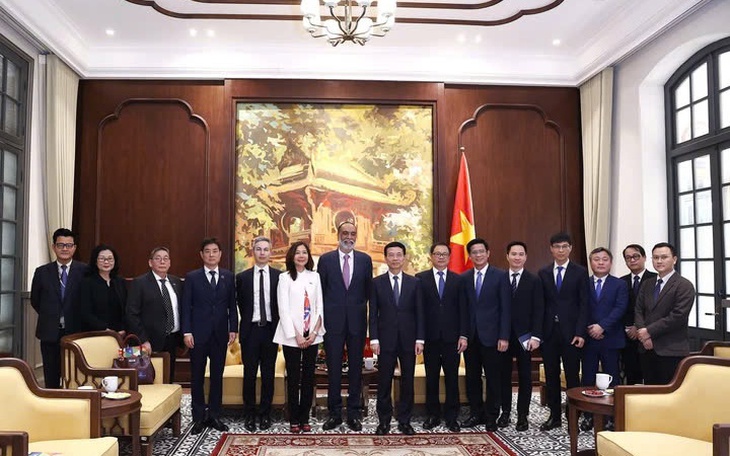
The session, held at the Ministry of Information and Communications (MIC) headquarters, focused on global digital cooperation, Vietnam’s digital infrastructure, AI development, and the country’s experiences in digital transformation.
Vietnam’s commitment to digital advancement
Minister Nguyen Manh Hung reaffirmed Vietnam’s high prioritization of digital technology.
Vietnam was among the first nations to approve a National Digital Transformation Program, with Prime Minister Pham Minh Chinh serving as the Chairman of the National Digital Transformation Committee.
Additionally, the recent Resolution No. 57-NQ/TW, issued on December 22, 2024, highlights Vietnam’s focus on breakthroughs in science, technology, innovation, and national digital transformation.
Vietnam is striving to become a global hub for digital talent in AI, semiconductor technology, and digital transformation. Approximately 10% of Vietnam’s 60,000 digital technology companies generate revenue from international markets, demonstrating rapid growth.
Minister Hung emphasized Vietnam’s achievements in digital infrastructure, with broadband Internet covering 99.8% of the population, 85% of households connected to fiber-optic networks, and widespread smartphone use.
UN recognition and opportunities for Vietnam
Gill commended Vietnam’s efforts to ensure near-universal Internet connectivity, a rarity globally. He described Vietnam’s digital technology space as “dynamic and inspiring,” adding that other countries would likely want to collaborate and learn from Vietnam’s journey.
Gill also highlighted the United Nations' Global Digital Compact (GDC), adopted at the Future Summit in September 2024. It focuses on three pillars:
Establishing a unified global vision for technological development.
Creating a forum for governments to discuss data governance and AI.
Enhancing cooperation among developing nations in managing and utilizing AI.
The UN Tech Envoy proposed Vietnam’s participation in the GDC’s global AI excellence network. This initiative aims to bolster AI capacity in developing countries, helping them build context-specific AI systems.
Vietnam’s role in global digital governance
Minister Hung expressed Vietnam’s willingness to actively participate in GDC programs. He proposed that Vietnam host UN conferences and forums on data governance and AI, emphasizing the need for open-source AI development tailored to different contexts.
Vietnam’s approach to AI distinguishes between public AI and private AI, with the MIC developing specialized AI tools to assist government officials. In this model, tech companies provide platforms and computational resources, while organizations manage data, knowledge, and training.
Hung and Gill shared a vision for democratizing digital technology, ensuring it is not monopolized by a few countries or corporations. They emphasized empowering users to actively contribute to the development of technologies they adopt.
“By viewing AI as a tool to refine technology, developing countries can play a larger role in technological advancements,” Minister Hung stated. “In digital technology, users of technology also become developers of that technology.”


